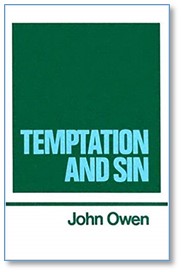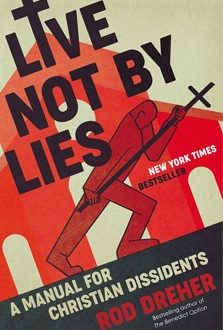 As I mentioned yesterday, I’ve been getting a number of questions from readers about a piece that I co-wrote with Rosaria Butterfield for The Public Discourse titled “Learning to Hate our Sin without Hating Ourselves.” Rather than trying to answer each reader individually, I am addressing these questions individually in a series of blog posts. I answered the first question yesterday.
As I mentioned yesterday, I’ve been getting a number of questions from readers about a piece that I co-wrote with Rosaria Butterfield for The Public Discourse titled “Learning to Hate our Sin without Hating Ourselves.” Rather than trying to answer each reader individually, I am addressing these questions individually in a series of blog posts. I answered the first question yesterday.
The second question is about the interpretation of James 1:14-15. Here is the reader’s question in his own words:
I had a question about James 1:14-15. You referenced this verse in one of the essays and commented, “If we do not drive a fresh nail daily into this aspect of original sin, sinful desire will eventually give birth to sinful deed.” I tend to agree with your conclusion, but in pointing this out to others they have objected by saying James 1:14-15 says that desire gives birth to sin. That is, desire exists prior to sins conception and birth and therefore isn’t to be considered sin itself… My question then is how would you respond to the person who raises the objection that James 1:14-15 separates desire from sin, such that the former is not itself sin but a temptation to sin?
This is a question that I tackled in Transforming Homosexuality, and what follows is an adaptation of what I have there. For the full context of this answer, again, I refer you to the book.
So what about the progression of thought from “desire” to “sin” in James’ words? How can we support the claim that the desire is sin when James seems to say only that desire leads to sin? The answer to these questions is found in the different ways that the New Testament uses the word “sin” (Gk. hamartia).
The Bible uses the term sin in at least two distinct senses. In some texts, it’s a reference to sinful deeds (e.g., 1 Tim. 5:4). In other texts, sin refers to a sinful principle/inclination that resides in the human heart (e.g., Rom. 7:20, 23). The standard lexicon on the Greek of the New Testament confirms this range of meaning for the term. Meaning one in this lexicon focuses on sinful deeds. Meanings two and three focus on sin as “a state of being sinful” and “a destructive evil power” within the sinner (see BDAG, s.v. “hamartia“).
So how does James use this term for sin? Does he access meaning one or meanings two and three? For whatever reason, James uses the term sin exclusively in the sense of meaning number one. Every appearance of the term in James’ letter clearly refers to sinful deeds (see James 1:15; 2:9; 4:17; 5:15, 16, 20). When James wants to refer to “a destructive evil power within us,” he uses different terms for that. And in this text, he uses the word “desire” to refer to the cravings emerging from our fallen nature.
So what then exactly is James’ point in 1:15? Is he saying that there is no sin at all in desire? That is not at all his point. James writes, “Then, after desire has conceived, it gives birth to sin” (James 1:15). James is simply saying that fallen desire gives birth to sinful deeds. It would be a non-sequitur to conclude from this that James’ reference to “desire” has no moral dimension to it. There are two reasons for this:
First, James is clear that the desire that leads to the sinful deed is indeed fallen. The desire “lures” and “entices” the sinner away from faithfulness and to sin.
Second, even though James doesn’t use the word sin to refer to such desire, the apostle Paul does. Romans 7 is a chapter-long meditation on sinful desire (epithumia), and Paul unambiguously labels it as sin (see Rom. 7:20, 23). We are on firm ground to regard it as such in James 1 as well.
 In his commentary on James 1, Sam Allberry explains it this way”
In his commentary on James 1, Sam Allberry explains it this way”
The uncomfortable truth is this: the evil desire tugging away at us is our own. We can’t blame any of the things around us. It is not the fault of our parents, our peers, our circumstances, our genes or our God… My circumstances may be the occasion for my sin, but they are not the cause of it.
No, our own desires are the cause of temptation. The desire to sin that wells up within us comes from our own hearts. Temptation would not be tempting if I were pure and not evil. This is reinforced by what James tells us about how temptation works…
James is showing us something deeply profound about our human nature, for we are both agent and victim of our desires. The desires are our own, from our own hearts—yet it is us that they entice and attack. Within each of us there is this deep tension. We really are our own worst enemies (pp. 34-35).
I agree with what Sam is saying here. Our confessions say it this way. We are sinners by nature and by choice. We inherit Adam’s corruption and have a sinful nature and desires before we ever choose to do a sinful deed. That is what James is talking about. Our fallen desires produce our fallen choices, and both are indeed sinful.
So how do we answer the question posed in the title of this post? In James 1:15, is desire sin, or is it a temptation. In my view, the answer is that it is both. John Owen is so insightful on this point:
Now, what is it to be tempted? It is to have that proposed to a man’s consideration which, if he close withal, it is evil, it is sin unto him. This is sin’s trade: Epithumei—’It lusteth.’ It is raising up in the heart, and proposing unto the mind and affections, that which is evil; trying, as it were, whether the soul will close with its suggestions, or how far it will carry them on, though it do not wholly prevail (p. 194).
When Owen talks about “sin’s trade,” he’s talking not about our sinful choices but our sinful nature. Sin in that sense desires and proposes to the mind that which is evil. That is how temptation unfolds in our own hearts, and it is why we must repent and mortify it every day of our lives.



